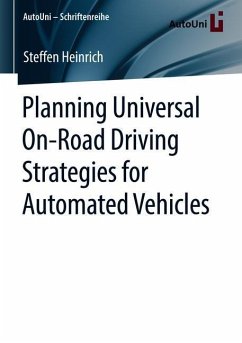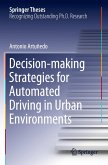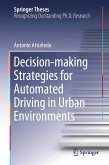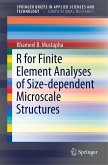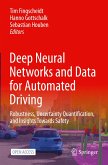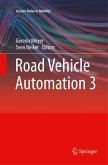Steffen Heinrich describes a motion planning system for automated vehicles. The planning method is universally applicable to on-road scenarios and does not depend on a high-level maneuver selection automation for driving strategy guidance. The author presents a planning framework using graphics processing units (GPUs) for task parallelization. A method is introduced that solely uses a small set of rules and heuristics to generate driving strategies. It was possible to show that GPUs serve as an excellent enabler for real-time applications of trajectory planning methods. Like humans, computer-controlled vehicles have to be fully aware of their surroundings. Therefore, a contribution that maximizes scene knowledge through smart vehicle positioning is evaluated. A post-processing method for stochastic trajectory validation supports the search for longer-term trajectories which take ego-motion uncertainty into account.
About the Author
Steffen Heinrich hasa strong background in robotics and artificial intelligence. Since 2009 he has been developing algorithms and software components for self-driving systems in research facilities and for automakers in Germany and the US.
About the Author
Steffen Heinrich hasa strong background in robotics and artificial intelligence. Since 2009 he has been developing algorithms and software components for self-driving systems in research facilities and for automakers in Germany and the US.

